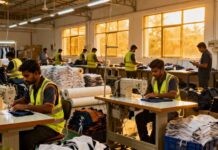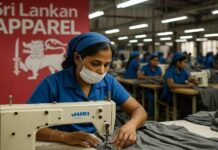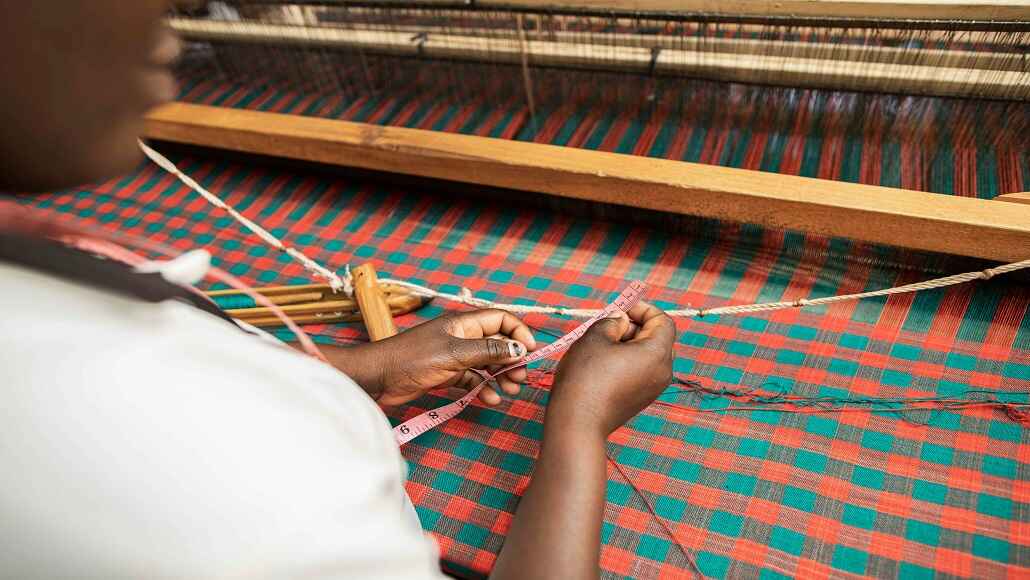Ethiopia’s textile and garment industry, a vital pillar of the country’s industrialization efforts, is confronting pressing challenges that threaten its growth and global competitiveness. Experts, labor advocates, and business leaders are raising concerns about Ethiopia textile industry challenges, including the lack of a national minimum wage and the shortage of skilled labor, which could undermine the sector’s sustainability.
A recent roundtable discussion organized by the Forum for Social Studies (FSS) highlighted these issues, with stakeholders unanimously pointing to the government’s slow response in addressing the skilled labor shortage. Dr. Tolera Aderie, former executive member of the Ethiopian Textile and Apparel National Association, emphasized the alarming decline in skilled workers entering the sector. The drop has been linked to the diminishing professional prestige of the industry and the widespread hiring of low-skilled, underpaid workers.
“Employers’ focus on cheap, unskilled labor may offer short-term savings, but it is detrimental to long-term productivity and the industry’s reputation,” Dr. Tolera warned. This approach, he noted, has hindered efforts to build a competent and sustainable workforce.
The Call for a National Minimum Wage
The absence of a statutory minimum wage remains a critical concern for the sector. Tesfaye Abdisa, President of the Ethiopian Textile Federation, has called for immediate government action. “The government’s continued delay in setting minimum wage limits is harming both workers and the sector as a whole,” Tesfaye stated. Factory managers in key industrial hubs like Hawassa, Bole Lemi, and Kombolcha have echoed these sentiments, stressing that the lack of legal wage protections complicates workforce management and retention of skilled employees.
A 2023 FSS study revealed the adverse effects of poor wage conditions, particularly for female workers in industrial parks and small- and medium-sized enterprises (SMEs). The research, based on interviews with workers, factory managers, and government officials, underscored the urgent need for statutory wage policies to safeguard labor rights and improve workers’ welfare.
High Turnover and Low Wages
The sector is also grappling with high turnover and absenteeism rates. Some industrial parks report annual turnover as high as 100%, with absenteeism reaching up to 10% per month. According to the International Labour Organization (ILO), the average monthly wage for Ethiopia’s textile and garment workers stands at just 3,000 birr (approximately $52), one of the lowest globally. A significant number of workers in foreign-owned factories have quit due to inadequate pay, reflecting widespread dissatisfaction and instability in the sector.
Gaps in Workforce Development
Despite government initiatives to attract investment and create jobs through the development of 13 specialized industrial parks, the sector continues to face challenges. Outdated vocational education and training (TVET) curricula, insufficient investment in training programs, and a lack of industry-aligned skills have left Ethiopia textile industry challenges unresolved, making it difficult to meet the demands of modern manufacturing.
The government’s ambitious target to create 350,000 textile jobs by 2025 is in jeopardy unless comprehensive reforms are introduced. Efforts to modernize training programs, invest in industry-relevant skills, and improve worker protections are critically needed to secure the sector’s future.
The Path Forward
Industry leaders and labor advocates are urging policymakers to take bold steps to address the sector’s challenges. They emphasize the importance of establishing a fair and enforceable minimum wage, updating skills training programs to align with technology-driven manufacturing, and improving protections for workers to reduce turnover and absenteeism.
Without immediate action, Ethiopia risks losing its global competitive edge in textiles—a sector that holds significant potential for economic growth and job creation. Comprehensive reforms are needed to ensure a sustainable and equitable future for the industry and its workforce.

































